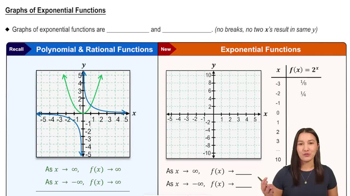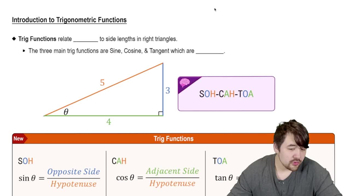Finding Limits
In Exercises 25–28, find the limit of g(x) as x approaches the indicated value.
lim (4g(x))¹/³ = 2
x →0
 Verified step by step guidance
Verified step by step guidance Verified video answer for a similar problem:
Verified video answer for a similar problem:



 5:21m
5:21mMaster Finding Limits by Direct Substitution with a bite sized video explanation from Patrick
Start learning